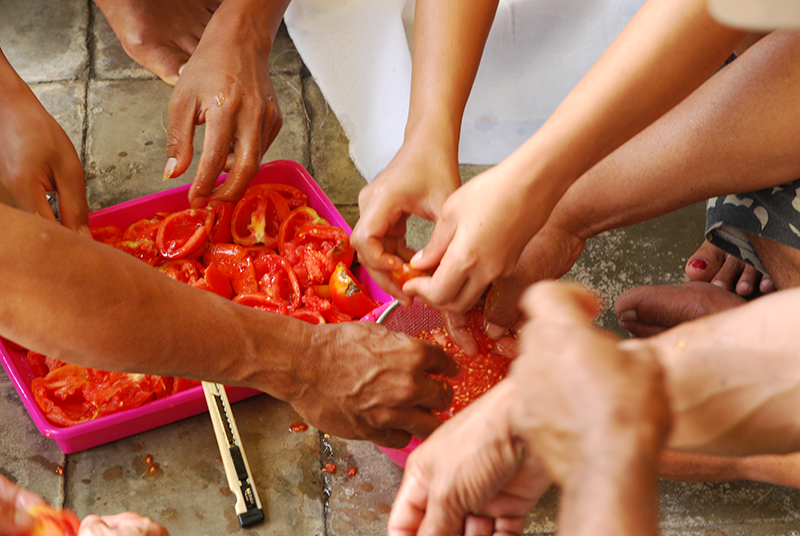In 1998, Indonesia entered a phase of severe financial and social crisis. In response, a diverse group of people from Bali got together to discuss how they could best help.
The group discussed the growing challenges being faced by Indonesian communities and conducted an evaluation of existing natural and human resources nationwide. They decided to focus attention on facilitating NGO program’s in as many areas of Indonesia as possible through the ‘Training of Trainers’ in Permaculture Design. This training offered organizations the understanding and tools to assist their local communities to provide food, shelter, energy and other needs in a sustainable and environmentally friendly way.
This Training was the forerunner of today’s IDEP Foundation. IDEP (Indonesian Development of Education and Permaculture) focuses primarily on the implementation of permaculture as an alternative solution to the financial crisis. Over time, IDEP foundation try to provide assistance to communities related to permaculture and sustainable living that helping communities in establishing their independence.
IDEP’s objectives:
- Develop a replicable model for community resilience in Indonesia: Curricula – Permaculture, CBDM, Community Resilience for both adults and children; A living model for community resilience;
- Deliver training and educational media to communities, especially in disaster prone areas: Establish network of partners; Deliver training; Disseminate related educational media;
- Facilitate information flow and support capacity for advocacy: Support information flow between international, national, and community bodies; Support community capacity building for advocacy;
- Strengthen local disaster response and recovery;
- Integrate community resilience into recovery and rehabilitation: Deliver appropriate community resilience training and educational media for communities in recovery;
- Use permaculture to rebuild community resources in a sustainable way.
Permaculture (permanent culture and permanent agriculture) is a system designed for environmental management within the community. It aims to fulfill needs and to remain sustainable by utilizing local resources through environmentally sound methods that are energy efficient and balance local wisdom with nature and the environment.
The Permaculture approach is an important alternative that moves forward in producing healthy organic plantations, home garden designs, more efficient village layouts, healthier environments, alternative energy production methods, and sustainable economic development. This design method works with nature’s systems, reduces pollution and waste, and is able to produce food and productive yields with low energy.
Among IDEP’s projects are a “Marine Trash Waste Management – ‘Clean Islands, Healthy Seas’” effort and a “Seed saving & Sustainable Agriculture ‘Seeds for Change’” effort.
IDEP Foundation’s core mission for food security into the future. This means a clean, green, community-inclusive pathway to reduce poverty in Bali and beyond.
Seed saving and organic permaculture farming or home gardening initiatives are growing IDEP Foundation’s successful cooperative networks with more than 20 local farmers across Bali and new program networks on Flores, Papua New Guinea, and in North Sumatra.
Photo shows Bangli Prison inmate farmers collecting heirloom seeds (via IDEP).

